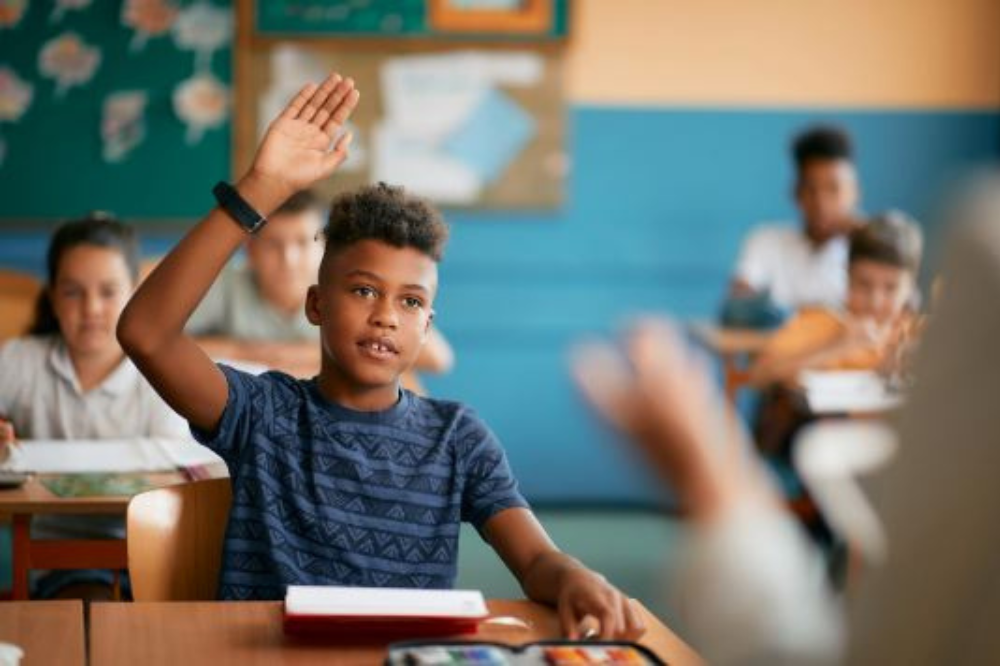
by Professor Melitta Hogarth, University of Melbourne
Education does not just impart information; it shapes who we are and who we might be.
Since 2010, the Australian Curriculum has included an Aboriginal and Torres Strait Islander Histories and Cultures cross-curriculum priority across all learning areas. As a result, beginning in every classroom, education in Indigenous Knowledge systems, histories and cultures has the potential to be a nation-building exercise.
Beyond bricks and mortar, documents like the Australian Curriculum inform institutions that shape our society.
However, some educators say they feel fearful of making mistakes or appearing tokenistic and are underprepared to confidently showcase Indigenous Knowledge in their classrooms.
The Australian Teachers’ Survey 2023 found that over half (51 per cent) of teachers aged 35 years and over felt unprepared to deal with First Nations histories and culture and student diversity.
These shortfalls are echoed in the recently released Improving Outcomes for All: Australian Government Summary Report of the Review to inform a better and fairer education system, which highlights the lack of understanding and confidence of educators when engaging with Indigenous Knowledge.
This lack of confidence also exists when teaching First Nation students. There is an urgent need for schools and governments to work with Aboriginal and Torres Strait Islander stakeholders to ensure educators provide culturally responsive learning environments and assessments for all First Nations students.
At Ngarrngga (pronounced “Naan-gah”, a Taungurung word meaning to know, to hear, to understand), an Indigenous-led project housed at the University of Melbourne’s Faculty of Education, we learnt that many educators would love to include Aboriginal and Torres Strait Islander Peoples’ cultural practices like dance, art and storytelling in their classes.
But they are unsure of where and under what circumstances this can be acceptable. This level of fear, and being unsure often leaves many educators frozen, perpetuating the silencing of Indigenous Knowledge.
We recently ran focus groups with classroom teachers from across the nation. The discussions highlighted the need for targeted support and resources for educators to ensure a more consistent and inclusive integration of Aboriginal and Torres Strait Islander content across all schooling year levels.
Educators reported strong concerns about the quality of relevant content at all career stages. They also identified other barriers to engaging with Indigenous Knowledge including time, budget constraints and lack of school and collegial support.
Ngarrngga aims to remove these barriers by making available curriculum and professional development resources produced by educators for educators.
We have partnered with schools to design, test and refine our resources, to support educators to be confident in showcasing Indigenous Knowledge in their teaching and learning.
We have identified three guiding principles to inform how we approach this work and believe these principles should apply to anyone working with Indigenous Knowledge and Indigenous Knowledge holders, and anyone teaching Aboriginal and Torres Strait Islander students:
1. RECOGNISE INDIGENOUS CULTURAL AND INTELLECTUAL PROPERTY
By recognising Indigenous Cultural and Intellectual Property, we create space to equalise the imbalance between Indigenous Knowledge and the assumed authority of western knowledge systems.
This both improves educators’ capacity and agency to better engage with and know their Aboriginal and/or Torres Strait Islander child or student and empowers teachers to engage with Indigenous content respectively.
2. REPARATIVE JUSTICE
We must acknowledge and address past injustices and understand how they persist in people’s lives.
Efforts must be made to redress the injustices experienced by Indigenous peoples by amplifying Indigenous voices and collaborating with educators to build knowledge, foster critical thinking and promote understanding of diverse perspectives in their classrooms.
3. RELATIONALITY
Relationality – the idea that everything is connected – is intrinsic to Indigenous ways of being, knowing and doing, and extends beyond human connections to encompass relationships with Country, kinship, cosmos and ideas, serving as both a way of being and a way of knowing.
These principles and the thinking behind them should form the foundations of our understanding of Indigenous Knowledges and intellect. It also means that educators and schools must be supported in building relationships with Aboriginal and Torres Strait Islander communities and colleagues.
Without connection with, and involvement from the respective communities, educators run the risk of attempting to teach culture that does not belong to them.
With Ngarrngga, we are putting these principles into action. The project is Indigenous-led and supported by an Expert Advisory Panel with most members being of Aboriginal and/or Torres Strait Islander descent. These Indigenous voices represent a breadth of lived experiences, including Indigenous Elders with representation from multiple Indigenous communities.
We recognise this project is just a small piece in the larger puzzle. Indigenous Knowledge, culture and history is a conceptual tapestry – expansive, abstract, universal, timeless and interwoven.
It transcends the limitations of the Australian Curriculum’s isolated content descriptors, colloquially known as the ‘curriculum dot-points’. We want educators to view these descriptors as the starting point for learning, not the endpoint.
The new cross-curriculum priority in the Australian Curriculum should be nation-defining, so it is vital that Ngarrngga and other groups support educators by illuminating the depth and complexity of Indigenous Knowledge, something that is currently missing in the Australian Curriculum.
This is an opportunity for all Australians to truly know, hear and understand the remarkable achievements and invaluable contributions of Aboriginal and Torres Strait Islander Peoples to our country.
Professor Melitta Hogarth is a Kamilaroi woman and Associate Dean (Indigenous) and Principal Research Fellow at the University of Melbourne’s Faculty of Education. This article was first published on the University of Melbourne’s ‘Pursuit’ webpage.


